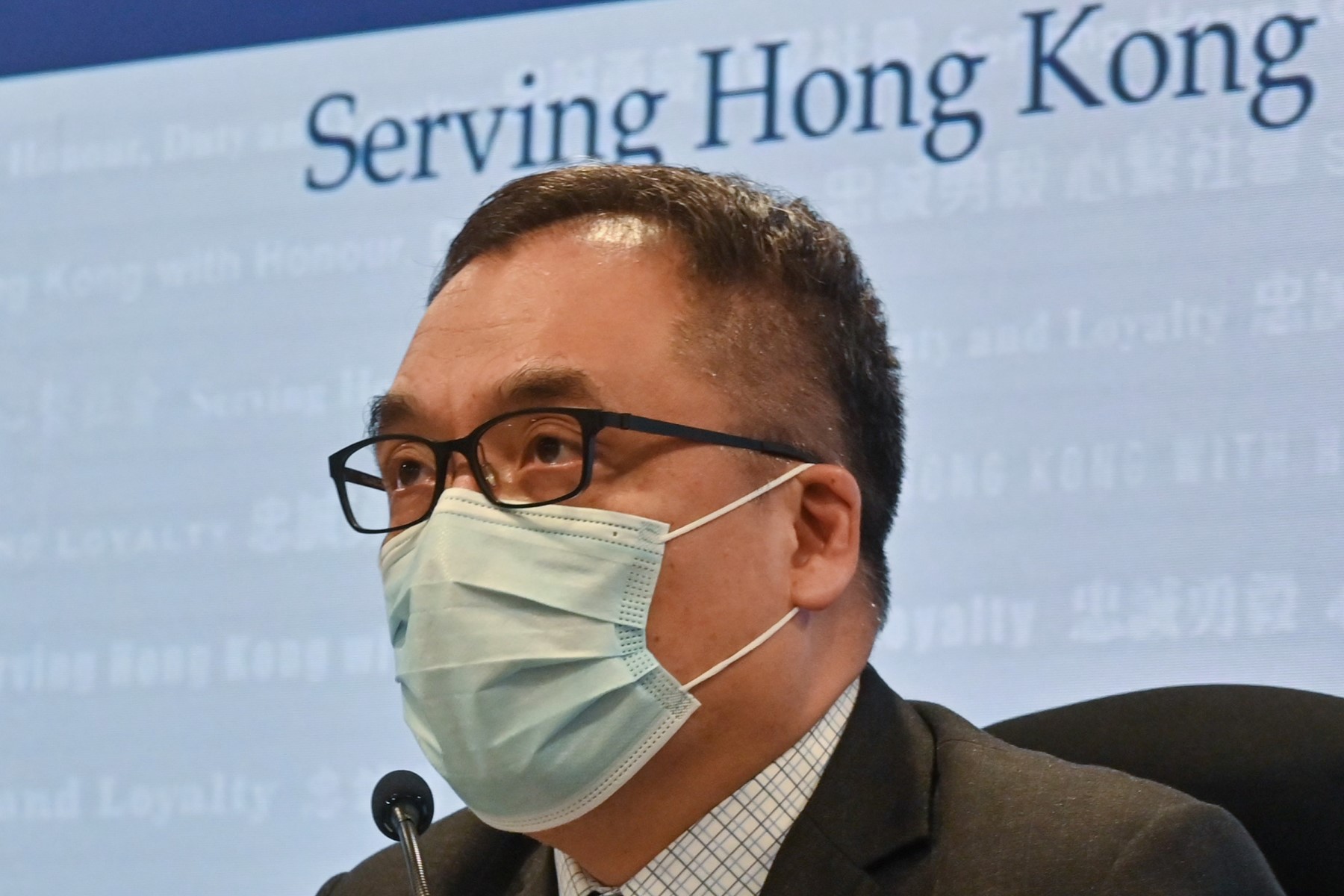Hong Kong media outlet closes after police raid, arrests

By Holmes CHAN
Hong Kong pro-democracy media outlet Stand News said Wednesday it will close after a police raid and arrests of seven current and former staff members, in the latest blow to the city’s rapidly shrinking press freedoms.
Suppression of the semi-autonomous Chinese city’s local press has increased in the wake of 2019’s huge and often violent democracy protests and Beijing’s subsequent imposition of a sweeping national security law.
On Wednesday morning, police officers burst into Stand News’ office, seizing phones, computers, documents and thousands of dollars, while hauling its acting editor-in-chief into the headquarters in handcuffs as it was searched.
“Because of the current situation, Stand News will stop operating immediately,” the outlet said later in a statement on Facebook.
Stand News said its website and social media would no longer be updated and would be taken down soon. It added that acting editor-in-chief Patrick Lam, who was among those arrested, had resigned and all employees were terminated.
Steve Li, senior superintendent of the national security police, accused the media outlet of publishing news articles and blog posts between July 2020 and November 2021 that incited hatred towards the Hong Kong government, among other alleged crimes.
“They described Hong Kong protesters as ‘being disappeared’ and ‘violated’… These are malicious allegations without any factual basis,” Li told a press conference.
The seven individuals were arrested under a British colonial-era law for “conspiracy to publish seditious publication”.
More than 200 officers were deployed to search the outlet’s newsroom with court authorisation to seize journalistic materials, police said.
Around lunchtime on Wednesday, they could be seen hauling boxes from the office. Li said they seized about HK$500,000 ($64,100) in cash.
The national security unit also froze about HK$61 million ($7.8 million) worth of the outlet’s assets, one of the largest sums it has ever frozen, Li said.
– ‘Editorially independent’ –
Police arrested former editor-in-chief Chung Pui-kuen, as well as four board members who resigned in June — Hong Kong pop star Denise Ho, barrister Margaret Ng, Christine Fang and Chow Tat-chi — according to local media.
Former Apple Daily editor Chan Pui-man, the wife of Chung, was the seventh person arrested under the law, police confirmed later in the day.
Li would not rule out further arrests, and said some individuals not in Hong Kong had been put on a wanted list.
Announcing its closure, Stand News thanked its readers, saying it was established as a non-profit in December 2014 to “take a stand in Hong Kong”.
“Stand News was editorially independent, and was dedicated to protecting Hong Kong’s core values such as democracy, human rights, freedom, rule of law and justice,” it said.
Hong Kong has long served as a regional media hub, though it has tumbled down press-freedom rankings in recent years as Beijing asserts greater control over the city.
During 2019’s unrest, police clashed with several Stand News reporters.
Enjoying this article?
Subscribe to get more stories like this delivered to your inbox.
European Union spokesman Peter Stano wrote on Twitter that the raid and arrests marked “a further deterioration in #PressFreedom” in the city.
And Kyle Ward, deputy secretary general for Amnesty International, said: “Authorities continue to weaponize Hong Kong’s legal system by invoking a colonial-era law of ‘seditious publication’ and suggesting that articles might be ‘inciting secession’.”
Meanwhile, exiled activist Nathan Law tweeted that the arrests illustrated the persecution of journalists and media that “dare to challenge them and speak the truth”.
But Hong Kong’s chief secretary John Lee told reporters those detained were “evil elements” and “bad apples abusing the position… of media worker”.
Stand News is the second Hong Kong media company targeted by the authorities, after Apple Daily — which shut down in June after its assets were frozen under the national security law.
Li denied police were targeting the media, saying outlets would not face legal trouble if their journalists wrote “unbiased” reports.
© Agence France-Presse
Agence France-Presse
